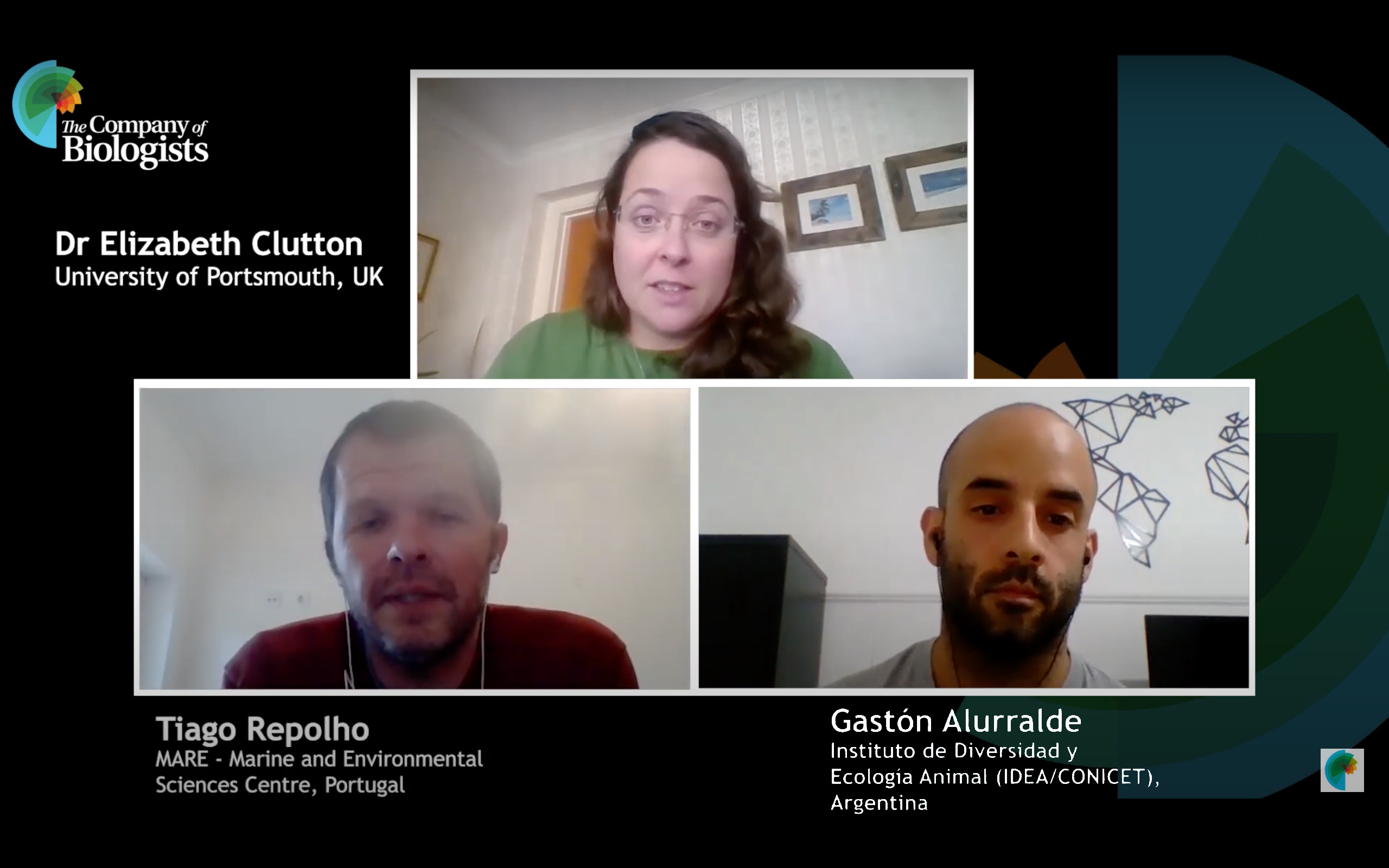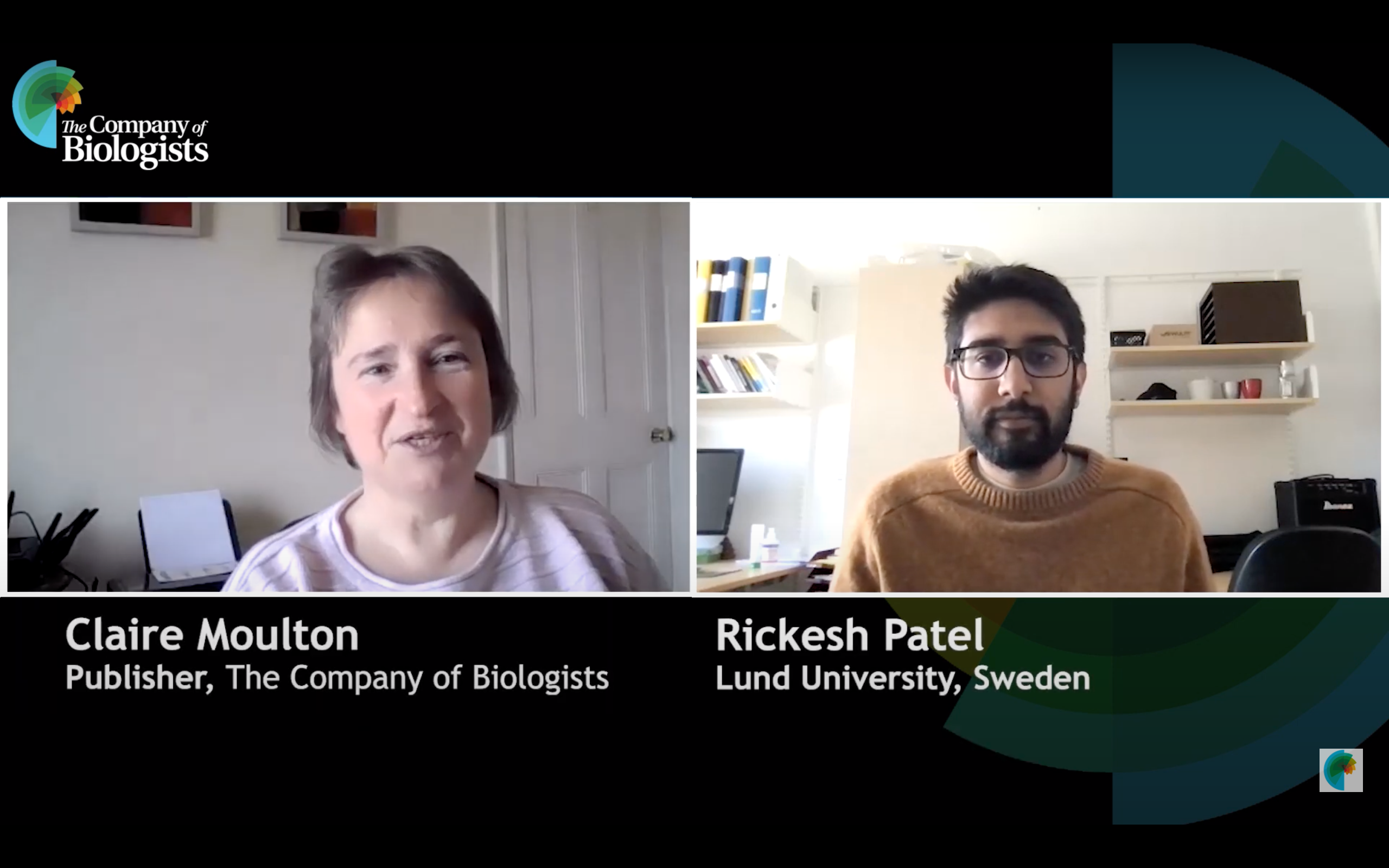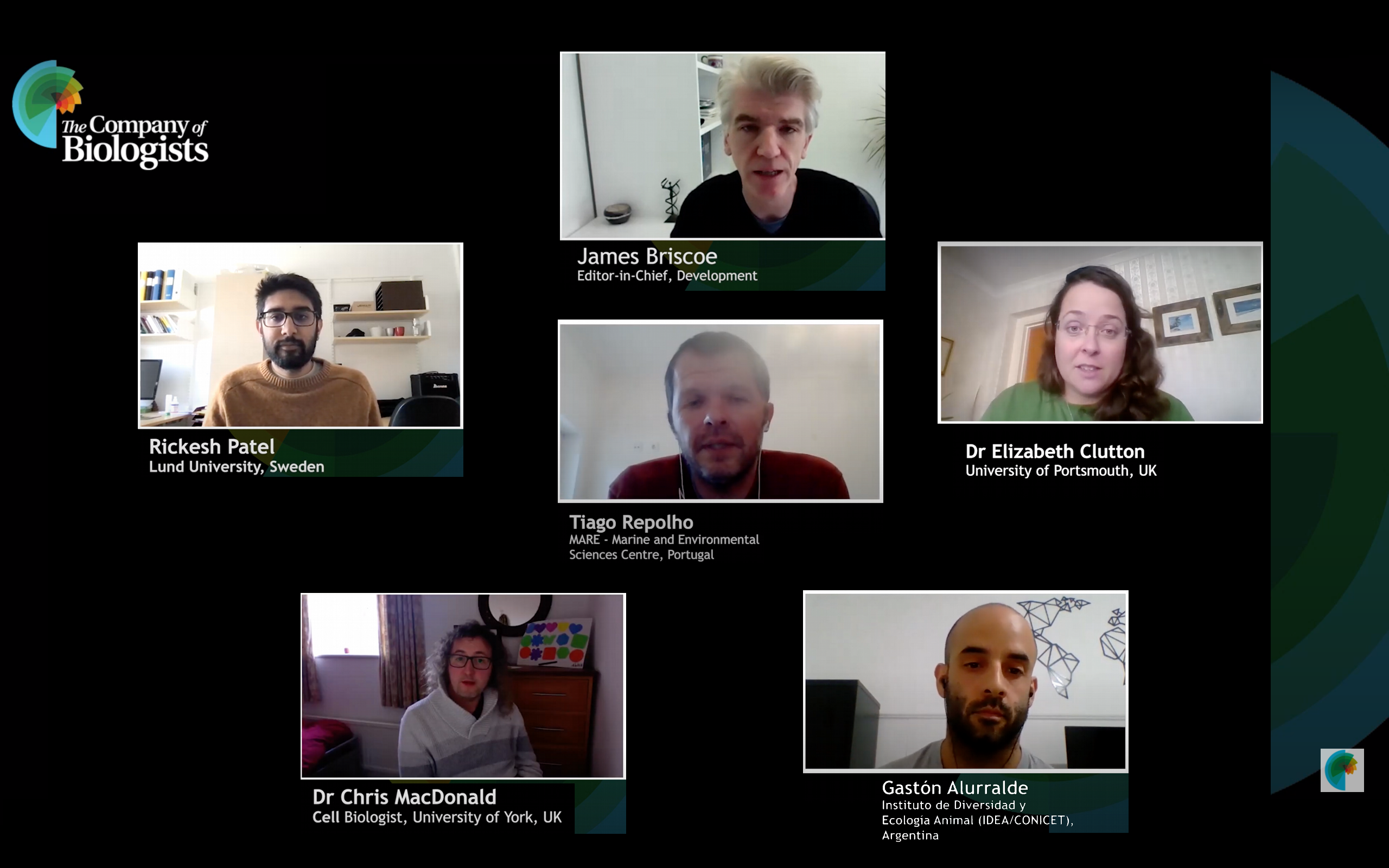Chris MacDonald on fee-free OA Publishing in Journal of Cell Science through our Read & Publish initiative
Dr Chris MacDonald (University of York, UK) speaks to our Publisher Claire Moulton about publishing Open Access free of charge in Journal of Cell Science through our Read & Publish initiative. Chris talks about why he thinks Open Access is important, how easy it was to submit his article under the Read & Publish initiative and how being able to publish OA free of charge benefits early career researchers in particular. He also gives an overview of the story behind his paper and his findings.
- Read Chris’ article in Journal of Cell Science
- Find out more about our Read & Publish initiative and participating institutions
- Read what authors say about our Read & Publish initiative
- See our step-by-step guide for authors
Transcript
Claire Moulton: The Company of Biologists is keen to enhance the Open Access options available to authors and readers.
Claire Moulton: Our journals were, in fact, the first in the world to gain Transformative Journal status.
Claire Moulton: And we're also pioneering uncapped Read & Publish agreements.
Claire Moulton: To explore the author benefits of Open Access publishing through Read & Publish agreements,
Claire Moulton: I'm meeting with one of our authors to hear more.
Claire Moulton: Chris MacDonald is a Cell Biologist at the University of York in the UK.
Claire Moulton: Chris, you recently published an article in Journal of Cell Science on glucose starvation in budding yeast.
Claire Moulton: Is Open Access important to you, and do you feel it plays a particular role for early-career researchers like yourself?
Chris MacDonald: Yes, I definitely think it's important.
Chris MacDonald: Open Access. This new drive for Open Access, I think, is a very positive thing, stopping research being hidden from people.
Chris MacDonald: And yes, Open Access articles and pre-printing solve that problem.
Chris MacDonald: I do think it's particularly helpful for early-career researchers to do that because it helps establish the techniques you use, the research you're doing, even at an early stage, which will be important to build on and hopefully make a name for yourself.
Chris MacDonald: So I think it's a very good thing.
Claire Moulton: And I believe the news about the Read & Publish agreement and that you could publish without having to pay an Open Access fee came as a nice surprise in the process?
Chris MacDonald: Yes, I probably should know more about how to go about publishing a paper.
Chris MacDonald: So the way I had gone about the Open Access charge was I'd contacted a colleague who'd published in the Journal of Cell Science recently.
Chris MacDonald: And they had made mention that as a Wellcome-funded researcher, they reminded me that I actually need to publish everything in Open Access formats.
Chris MacDonald: It was mentioned that there was a pool of money that went towards this and that that pool might actually be running low at the moment.
Chris MacDonald: I don't really know how that works.
Chris MacDonald: So I wasn't entirely sure how to proceed, but actually, after we got the paper accepted, the communications from The Company of Biologists explained that there was no need to worry about that and that it was pretty much all taken care of.
Claire Moulton: So very pleased with your librarian for signing up for a Read & Publish agreement.
Chris MacDonald: So yes, I think they said it was the first time they'd gone through it, and they were really glad that it had gone smoothly.
Claire Moulton: Yes, it was the first paper published since we'd signed the Read & Publish agreement.
Claire Moulton: And I believe it was the first paper from your lab, so that must have felt great.
Claire Moulton: Can you tell us briefly about your findings?
Chris MacDonald: Yes, so briefly, we used budding yeast to investigate how surface membrane proteins are downregulated in response to glucose starvation as a cell survival mechanism.
Chris MacDonald: And we found a transcriptional response that elevated this downregulation, specifically in response to glucose starvation.
Chris MacDonald: And we found that this regulated the vast majority of surface proteins.
Chris MacDonald: However, we did find a small amount of nutrient transporters are actually retained at the surface following starvation in these special subdomains called eisosomes.
Chris MacDonald: And the ability of cells to sequester a little reserve pool of nutrient transporters actually provided a physiological benefit.
Chris MacDonald: So the cells recovered from starvation quicker due to their ability to keep those proteins at the surface.
Chris MacDonald: So that was the two different arms of surface protein regulation in response to glucose starvation.
Claire Moulton: How was it publishing in Journal of Cell Science?
Chris MacDonald: Yes, it was a really positive experience.
Chris MacDonald: In the lab, we're fans of Journal of Cell Science, so it features heavily in journal clubs.
Chris MacDonald: And it was actually the first journal I ever co-authored a paper on as a PhD student in Nia Bryant's lab.
Chris MacDonald: So publishing there to begin with is kind of cool for me because of that.
Chris MacDonald: But it was also the entire process, from getting feedback and reviews, and editorial comments were all very streamlined.
Chris MacDonald: Yes, I've no complaints at all.
Chris MacDonald: It was the easiest of processes.
Claire Moulton: And you preprinted the paper first.
Chris MacDonald: Yes, so we posted it in bioRxiv about a year ago.
Chris MacDonald: And that was, I think, a mechanism we'll use for pretty much all research in the lab.
Chris MacDonald: It was extremely positive.
Chris MacDonald: We had a lot of feedback from different people, unexpected sources.
Chris MacDonald: Yes, I think it just helped, as a new lab starting out, it helped say that we had done something even though it hadn't been published yet.
Chris MacDonald: So yes, and then we went on to improve it.
Chris MacDonald: And then with the help of reviewer comments and so on, we managed to get it published.
Claire Moulton: And how was the process for claiming the fee-free Open Access publication?
Chris MacDonald: Yes, so it was so simple, it barely needs mention.
Chris MacDonald: I think we might have signed a piece of paper or ticked a box, but yes, and then it was just, "Yep, you're eligible because of the University of York's agreement with The Company of Biologists."
Chris MacDonald: And then, yes, that was it.
Claire Moulton: Perfect. So you'd recommend it to other researchers and other institutions?
Chris MacDonald: 100%, yes.
Chris MacDonald: And I see other people are doing it as well.
Chris MacDonald: And I know people in our Department, they publish in Journal of Cell Science and Development, so I can see it having near and far-reaching effects.
Claire Moulton: Excellent. That's just what we want to hear.
Claire Moulton: We can see that Open Access increases the usage of our journal articles because readers have greater access to the content.
Claire Moulton: And they also tend to get higher altmetric scores, reflecting the online attention they receive through social media.
Claire Moulton: So we can see that librarians are putting in place Read & Publish agreements that are good for authors, good for journals, and good for science.
Claire Moulton: Thank you very much, Chris.
Chris MacDonald: Cool. Thank you.










